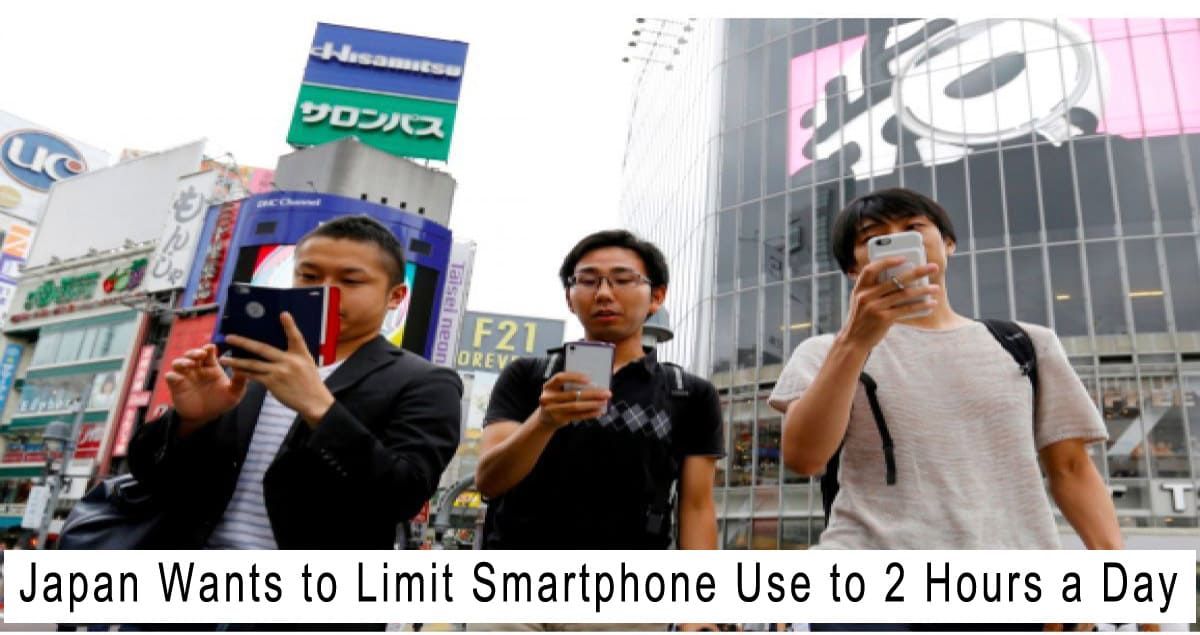
Japan Wants to Limit Smartphone Use to 2 Hours a Day
Japan Wants to Limit Smartphone Use to 2 Hours a Day – The city of Toyoake, in Aichi Prefecture, Japan, recently introduced a rather bold idea: residents are encouraged to limit their smartphone use to just two hours a day. While the rule isn’t legally binding, it has already sparked heated debates both in Japan and abroad. After all, in today’s hyper-connected world, is it really possible to “unplug” for most of the day? https://riddlecloud.net
Let’s break down the background of this policy, the public’s reaction, how it compares to other countries, and what we can personally take away from it.
Japan Wants to Limit Smartphone Use to 2 Hours a Day :
Why Did Japan Decide to Restrict Screen Time?
According to Mayor Masafumi Koki, the initiative was born out of concern for the physical and mental health of Toyoake’s residents. Research shows that Japanese children and teens spend over five hours a day online, excluding school-related tasks. The side effects are becoming hard to ignore: poor sleep, lack of focus, weakened family communication, and even early signs of digital addiction.
The city hopes the two-hour guideline will serve as a “wake-up call” for its citizens.
“It’s not a strict ban, but more of a guideline,” Koki explained. “We want residents to sleep better, spend more time with their families, and rethink how much time they give to their screens.”
What Exactly Does the Rule Say?
Here’s the breakdown of Toyoake’s proposal:
- Two hours each day, outside of work or school hours, are allotted for screen time.
- Digital curfew: Elementary school students (ages 6–12) should stop using devices by 9:00 p.m., while teens and adults are advised to put their phones away by 10:00 p.m.
- Non-binding: No penalties will be imposed. The rule is essentially an educational campaign rather than an enforceable law.
In other words, this isn’t a police-enforced ban—it’s more like a citywide digital wellness challenge.
Mixed Reactions: Unrealistic or Necessary?
The Pushback
Unsurprisingly, many residents aren’t too thrilled. Within just a few days of the announcement, the city received more than 100 responses, with roughly 80% being critical.
Some netizens mocked the idea, saying:
- “Two hours? That’s just enough for one movie!”
- “How am I supposed to read, work, and stay connected with family in such a short time?”
The sentiment reflects a common frustration: in modern life, smartphones aren’t just entertainment—they’re central to communication, learning, and even daily tasks.
The Supporters
On the flip side, parents and health experts see value in the initiative. Many worry about children losing sleep over online games or endless scrolling. Overuse of screens is associated with obesity, melancholy, eyesight issues, and delays in social skills, according to experts in digital wellbeing.
The “2-hour rule” proposed by Toyoake is viewed from this perspective as a gentle reminder to adopt better digital behaviors.
How Does This Compare Globally?
Toyoake isn’t alone in tackling screen-time issues.
- China: In 2023, the government introduced strict limits—16- to 18-year-olds may use devices for a maximum of 2 hours daily, ages 8–15 for 1 hour, and children under 8 for just 40 minutes. China had already banned excessive online gaming for minors.
- France: Phones are banned in schools to encourage focus in class.
- Kagawa Prefecture, Japan: Back in 2020, the local government suggested children play games no more than 60–90 minutes daily.
Meanwhile, the World Health Organization (WHO) recommends that children aged 2–4 should have no more than 1 hour of screen time per day, and babies under 2 should avoid screens altogether.
Clearly, Toyoake’s guideline fits into a growing global movement to rethink our relationship with technology.
Key Takeaways for Digital Wellbeing Enthusiasts
For those of us interested in digital wellness, Toyoake’s initiative is more than just a quirky local policy. It’s a reminder that:
- Screen time needs boundaries. Smartphones aren’t inherently bad, but overuse can silently affect our health and relationships.
- Offline interaction matters. A family dinner without phones can do more for bonding than hours of group chats.
- Public policy can spark dialogue. Even if the rule isn’t enforceable, it opens up important conversations in homes, schools, and workplaces about how much time is “too much.”
Practical Tips: How to Try the “2-Hour Rule” Yourself
Want to experiment with Toyoake’s approach? Here are some easy strategies:
- Use built-in tools. Most phones have digital wellbeing or screen time settings that help monitor daily usage.
- Create no-phone zones. Ban devices from bedrooms and dining tables to encourage rest and family interaction.
- Set a digital curfew. To improve your quality of sleep, put your phone away at least an hour before bed.
- Replace screens with hobbies. Try reading a paperback book, cooking, or doing light exercise instead of endless scrolling.
- Make it a family challenge. Discuss the rules together so kids feel involved rather than forced.
Final Thoughts
Though it may seem drastic, Japan’s trial restricting smartphone use to two hours per day has a straightforward message: moderation is essential. Technology should enrich our lives, not dominate them.
You don’t have to live in Toyoake to benefit from this reminder. Start small—set boundaries, use wellbeing tools, and reclaim your time from screens. Who knows? You might sleep better, feel calmer, and enjoy deeper connections with the people around you.
Because at the end of the day, it’s not really about screens—it’s about living fully in the moments that matter most.




